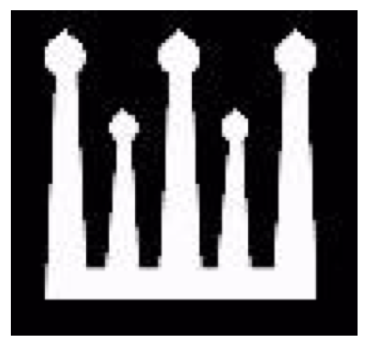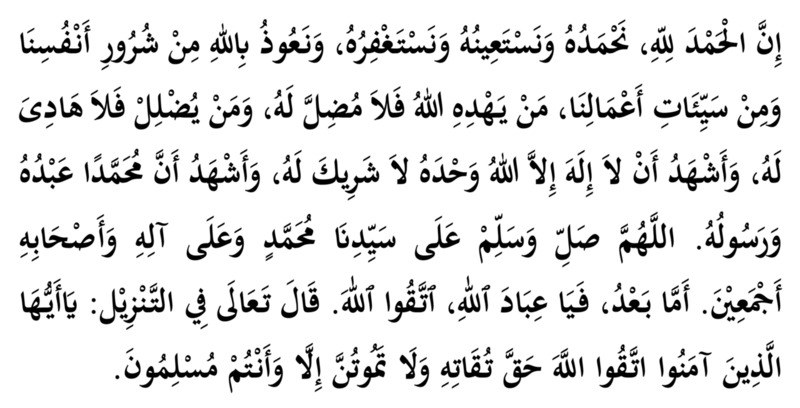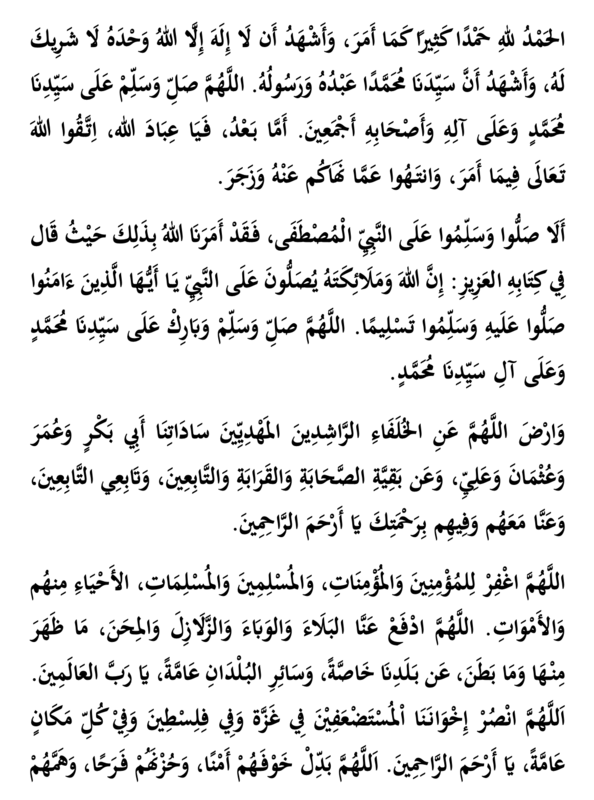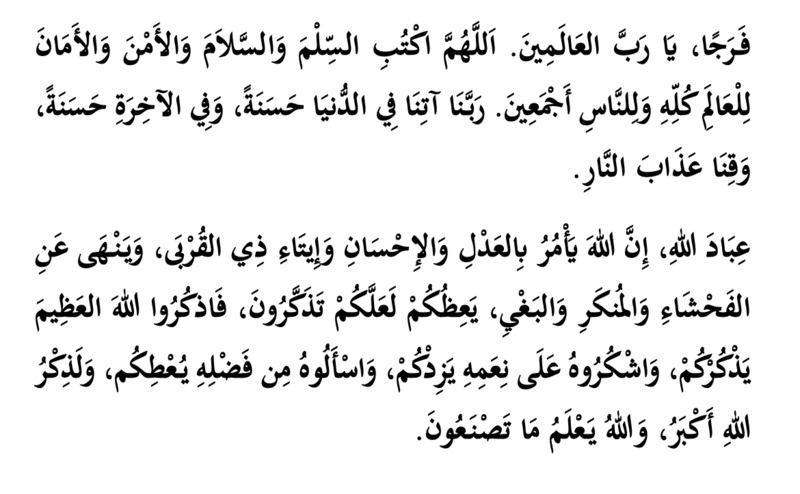

Majlis Ugama Islam Singapura
Friday Sermon
18 July 2025 / 22 Muharram 1447H
Hijrah - A Gateway to Communal Unity

Dear congregation blessed by Allah,
Let us adorn ourselves with taqwa towards Allah s.w.t. — taqwa that guides the heart to obey all His commands and abstain from His prohibitions. May this taqwa be a light in times of darkness and bring goodness into our lives. Amin, ya Rabbal ‘Alamin.
Dear brothers,
Why did Allah create human beings differently? Why were we not made into a single, uniform nation?
The answer to this question lies in verse 13 of Surah Al-Hujurat:

Which means: "O mankind! Indeed, We created you from a male and a female, and made you into nations and tribes so that you may know one another. Verily, the most honourable of you in the sight of Allah is the one who harbours the most taqwa. Indeed, Allah is All-Knowing, All-Aware."
Honoured congregants,
Allah instructs us to build relationships based on justice and harmony, rooted in taqwa — not merely in race, language, skin colour, or lineage. This divine lesson was beautifully manifested in the Hijrah (migration) of Prophet Muhammad s.a.w. to the city of Madinah. It marked the beginning of a new society composed of diverse tribes and communities, united in heart, mutual respect, and harmony.
In Madinah, the Prophet s.a.w. established brotherhood between the Muhajirinand the Ansar. He also enacted the Constitution of Madinah — a pact that safeguarded the rights of all residents, including non-Muslims, allowing them to live in peace and free from oppression.
This is clear proof that Islam upholds the principles of equality, unity, and harmony across religions and ethnicities.
The Prophet s.a.w. once said:

Which means: “Indeed, Allah has removed from you the arrogance of Jahiliyyah (age of ignorance) and its pride in ancestry. You are either a pious believer or a wretched sinner. You are all descendants of Adam, and Adam was created from soil.” (Narrated by Abi Daud)
Dear Friday congregation,
Let us reflect on two key lessons from the Hijrah that are highly relevant for us today:
First: Viewing differences as pathways of love, not gaps of hatred.
Dear brothers, our differences in appearance, race, and background are all set by Allahs decree. They are not errors — rather, they are a test for us to see how just, compassionate, and loving we can be toward one another.
Allah says in Surah Al-Hujurat, verse 11, which means: “O you who believe! Let not some men ridicule others — it may be that those ridiculed are better than them. Nor let women ridicule other women — they too may be better than them. Do not defame one another, nor call each other by offensive nicknames. How evil is the name of wickedness after faith. And whoever does not repent — they are the wrongdoers.”
Brothers, we learn from this verse that Allah s.w.t. strictly forbids all forms of mockery, ridicule, and verbal abuse. Nobility is not merely measured by lineage or looks, but by faith and taqwa which reside in one’s heart.
Indeed, belittling others only fuels hatred, disturbs harmony, and weakens unity. In contrast, Islam calls us to humility, mutual understanding, and respectful speech.
Second: Let our words unite, not divide.
In a hadith narrated by Imam Muslim, the Prophet s.a.w. once rebuked Abu Dzar r.a. for degrading another person with a racially offensive term:

Which means: "Indeed, you are a man still affected by the ignorance of Jahiliyyah."
Imagine — if our Prophet Muhammad s.a.w., the most noble of men, blessed with miracles and divine guidance, rejected all forms of racial and ethnic discrimination, then who are we, whose place in Paradise is not guaranteed, to act superior to others and utter words that bring others down?
True Islam teaches us to know each other, not to insult. It calls us to respect, not to hate. It elevates those who are mindful of Allah — those who submit to His magnificence, follow His commands, and avoid His prohibitions.
Our tongues are a divine gift and trust from the Almighty. Let us use them wisely. Speak words that uplift and unite. Treat one another with respect and kindness, for therein lies the seeds of harmony. Injustice and cruelty towards one another not only degrade our humanity, but also lead us to sin in the sight of Allah.
Honoured congregation,
The Prophet’s efforts in uniting the Muhajirin and the Ansar, and establishing peaceful relations with non-Muslim communities after the Hijrah, clearly show that Islam is a light that guides toward brotherhood, justice, and harmony.
Islam calls for a society that cultivates love amid diversity. In this world, we are entrusted to be bearers of mercy and callers to justice — not only among fellow Muslims, but to all of humanity, without exception.
May Allah s.w.t. make us a people who sow peace, build bonds of brotherhood regardless of differences, and may His mercy accompany us in this world and the hereafter. Amin, ya Rabbal ‘Alamin.

Second Sermon



